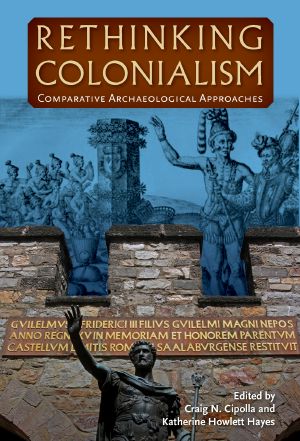Rethinking Colonialism

- Authors
- Cipolla, Craig N.
- Publisher
- University Press of Florida
- Date
- 2015-05-26T00:00:00+00:00
- Size
- 14.77 MB
- Lang
- en
“Insightful. Challenges archaeologists to think deeply about how we study colonialism.”—Lee M. Panich, coeditor of Indigenous Landscapes and Spanish Missions: New Perspectives from Archaeology and Ethnohistory
“Manages the rare feat of offering a range of detailed case studies that engage in a much broader comparative debate.”—Peter van Dommelen, coeditor of Rural Landscapes of the Punic World
“Facilitates critical engagement not only with colonialism’s pasts, but perhaps more importantly, with its presents and futures. The volume’s international contributors draw on regional traditions, interpretive frameworks and theoretical perspectives which, in sum, make an important collective contribution to global comparative archaeologies.”— Rodney Harrison, coeditor of Rethinking Colonial Pasts through Archaeology
Historical archeology studies once relied upon a binary view of colonialism: colonizers and colonized, the colonial period and the postcolonial period. The contributors to this volume scrutinize imperialism and expansionism through an alternative lens that rejects simple dualities and explores the variously gendered, racialized, and occupied peoples of a multitude of faiths, desires, associations, and constraints. Colonialism is not a phase in the chronology of a people but a continuous phenomenon that spans the Old and New Worlds. Most important, the contributors argue that its impacts—and, in some instances, even the same processes set in place by the likes of Columbus—are ongoing.
Inciting a critical examination of the lasting consequences of ancient and modern colonialism on descendant communities, this wide-ranging volume includes essays on Roman Britain, slavery in Brazil, and contemporary Native Americans. In its efforts to define the scope of colonialism and the comparability of its features, this collection challenges the field to go beyond familiar geographical and historical boundaries and draws attention to unfolding colonial futures.